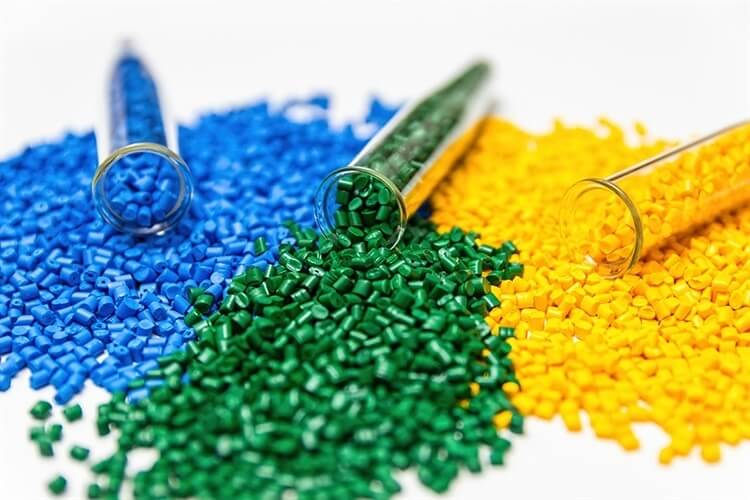Taking Advantage Of the Power of Polymers: Comprehending the Comprehensive Uses and Favorable Influences
Polymers, with their varied chemical frameworks and residential properties, have become indispensable in countless markets, revolutionizing the means we communicate with materials each day. From the product packaging that safeguards our food to the fibers that clothe us, the applications of polymers are huge and varied. Yet beyond their common existence exists a deeper understanding of their favorable effects, getting to far past simple convenience. As we explore the extensive usages of polymers and their role in forming a more lasting, reliable, and ingenious future, it becomes noticeable that their capacity is as substantial as the molecules themselves.
Flexibility in Everyday Products
Polymers display impressive versatility in a broad range of daily items, showing their crucial role in modern society. From the flexible plastic casing of smartphones to the resilient fibers in clothes, polymers have reinvented the method we engage with items in our lives. One of the most typical uses of polymers is in packaging products. Polyethylene, for instance, is extensively made use of in food product packaging as a result of its light-weight, long lasting, and moisture-resistant properties. Additionally, polymers play an essential role in the automotive sector, where they are made use of in making light-weight elements that enhance gas performance.
Eco-friendly polymers are used in sutures and implants, lowering the risk of damaging reactions in people. In the building sector, polymers are incorporated right into paints, adhesives, and insulation materials, improving longevity and energy effectiveness.
Sustainability in Product Innovations
With the recurring emphasis on environmental awareness and resource effectiveness, the emphasis shifts towards sustainability in product innovations, showing an expanding commitment to accountable production techniques across different sectors. Recently, there has been a significant rise in the development of sustainable materials, especially within the world of polymers. These cutting-edge materials are designed to decrease ecological influence throughout their whole lifecycle-- from sourcing raw products to disposal or recycling.
One substantial facet of sustainability in product innovations is the concept of biodegradability. Biodegradable polymers have garnered attention for their ability to break down naturally into non-toxic byproducts, decreasing waste and contamination. Furthermore, making use of recycled polymers originated from post-consumer or post-industrial sources is acquiring traction as a means of advertising a round economic situation and lowering reliance on virgin products.

Enhancing Efficiency in Engineering
Enhancing efficiency in engineering needs a careful combination click to read more of sophisticated innovations and accurate approaches to optimize functionality and efficiency in numerous commercial applications. Polymers play a vital duty in check it out this undertaking, using a vast array of advantages that improve the performance of engineering products and parts.
One secret aspect of boosting efficiency in design is the ability of polymers to improve resilience and stamina. By integrating polymers into design styles, producers can develop light-weight yet durable frameworks that can withstand high levels of stress and pressure. This characteristic is specifically useful in industries such as aerospace, auto, and building, where the need for strong yet light-weight materials is extremely important.
Additionally, polymers can additionally improve efficiency by offering thermal and chemical resistance, reducing friction, and improving electric conductivity. These properties make polymers suitable for a wide variety of engineering applications, consisting of seals, bearings, coverings, and digital elements. Polymers. By using the special residential properties of polymers, engineers can enhance the efficiency of their styles and develop more effective and dependable items
Effect On Clinical Advancements
The combination of innovative polymer technologies has significantly added to revolutionary innovations in the medical area. Polymers have played a crucial function in modern-day medical improvements, ranging from Resources medication shipment systems to tissue engineering. Among the vital areas where polymers have actually made a significant impact remains in the growth of biodegradable stitches and implants. These polymers can be customized to deteriorate at a details price, allowing for much better injury healing and reducing the requirement for added surgeries to eliminate implants.
Additionally, polymer-based products are significantly being utilized in medical devices such as catheters, stents, and prosthetics due to their biocompatibility and versatility. As an example, polymer coverings on clinical tools can protect against infections and enhance general patient outcomes. In addition, innovations in nanomedicine have actually enabled using polymer nanoparticles for targeted medicine shipment, enhancing the efficacy and lowering negative effects of various medicines
Role in Environmental Preservation

In addition, polymers are used in water therapy procedures, aiding in the filtration and recycling of water sources. This helps in minimizing water pollution and making sure accessibility to clean water for both human usage and ecological health. Polymers likewise play a role in agriculture with the growth of eco-friendly mulches and controlled-release fertilizers, advertising lasting farming techniques.
Conclusion
To conclude, polymers have actually shown to be a flexible and crucial material in different markets, from day-to-day items to design and clinical advancements. Their influence on sustainability, efficiency improvement, and ecological conservation is significant. Understanding the comprehensive usages of polymers emphasizes their relevance in driving technology and progress in multiple fields. The continued exploration and use of polymers will most certainly lead to further improvements and favorable effects on culture.
Comments on “Recognizing Polymers: The Scientific Research Behind Versatile Products”